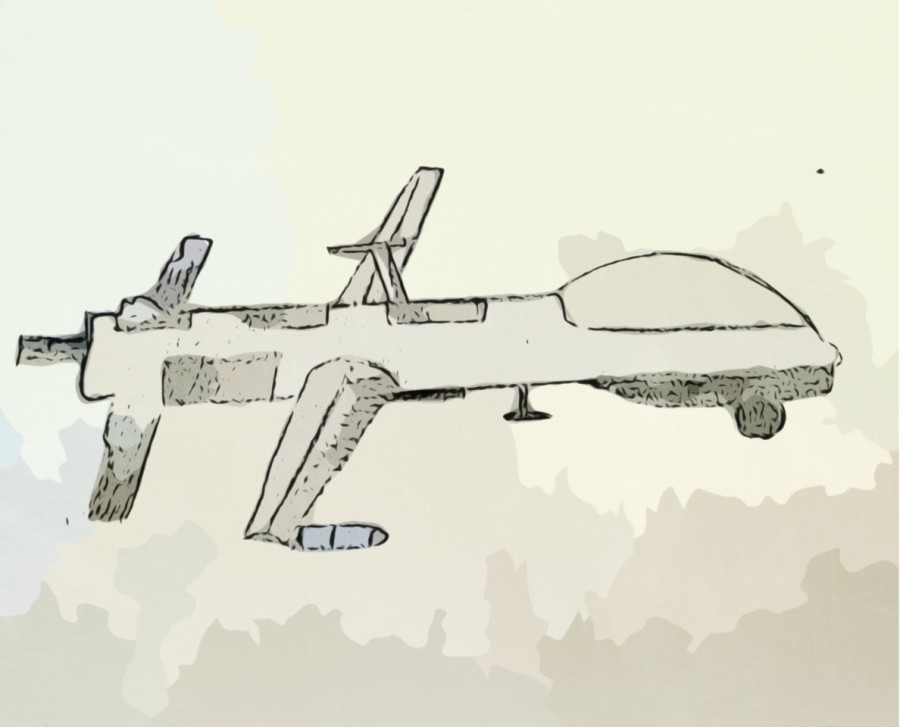Unmanned: a new era of warfare
Erin Mahon ’17 delves into the impact of drone warfare.
Fifty years ago, man and machine fighting side-by-side was a realm entertained only by the movie industry in future, sci-fi related films. However, in today’s ever evolving world, the fiction of on-screen combat has manifested into our reality. The Cold War left the U.S., China, and Russia in a continual battle of technological superiority and the next advancement? Drone warfare.
Perhaps several images flash before your eyes when the topic of “drone warfare” is initiated. You might traverse your memory and reach the beloved image of a certain R2D2 that Star Wars so successfully incorporated into our lives, or maybe it is the newly introduced companions to the crew in “Interstellar”, Tars and Case. The latter were even responsible for saving the lives of various characters within the film. Robots and humans working together is not a new concept, and according to our entertainment value, is perhaps already more integrated within our lives than we think.
There are, of course, reasons for hesitation in regards to a leap of this degree. Many members of the media and the public, such as the “Los Angeles Times,” have asked questions like, “Will drones prove as difficult to control as the internet has? Will their lack of humanity pose threats to loyalty?” And, if a U.S. drone is captured by an enemy, will that lead to a breach of U.S. technology? The answers to these questions are all a very likely yes. The “Los Angeles Times” has reported that countries such as China are already producing drones and providing them to countries abroad, causing a proliferation of these deadly remote-controlled machines. And, when deadly technology does proliferate, there will be a future in which these questions can and are a reality.
According to the “Financial Times,” Secretary of Defense, Ashton Carter, believes in the advancement of America’s investment in drone warfare because, “only by reasserting American technological superiority can deterrence be maintained.” He also foresees a drastically different fight for the US in coming years. A fight that revolves more around technological warfare than the soldier-against-soldier interactions of the past.
Reservations when approaching as serious a topic as this are assuredly vital, for they help in discerning the best course of action. Though I find it is important to remember that if we reach a point where our reservations hinder our ability to progress, then we will never succeed. Had the myriad of inventors during the late 19th century and throughout the 20th never turned their ideas into physical genius because their hesitation and fear of failure kept them from doing so, then imagine how different a day in the life of a 21st century teenager might be. I think the more knowledge we have, the more equipped we will be to handle the question of whether or not to initiate drones into our future warfare. The only way to reach that goal, is to keep experimenting and remain interested in how this might prove beneficial to us, or conversely, if it will prove more detrimental than anything else.




